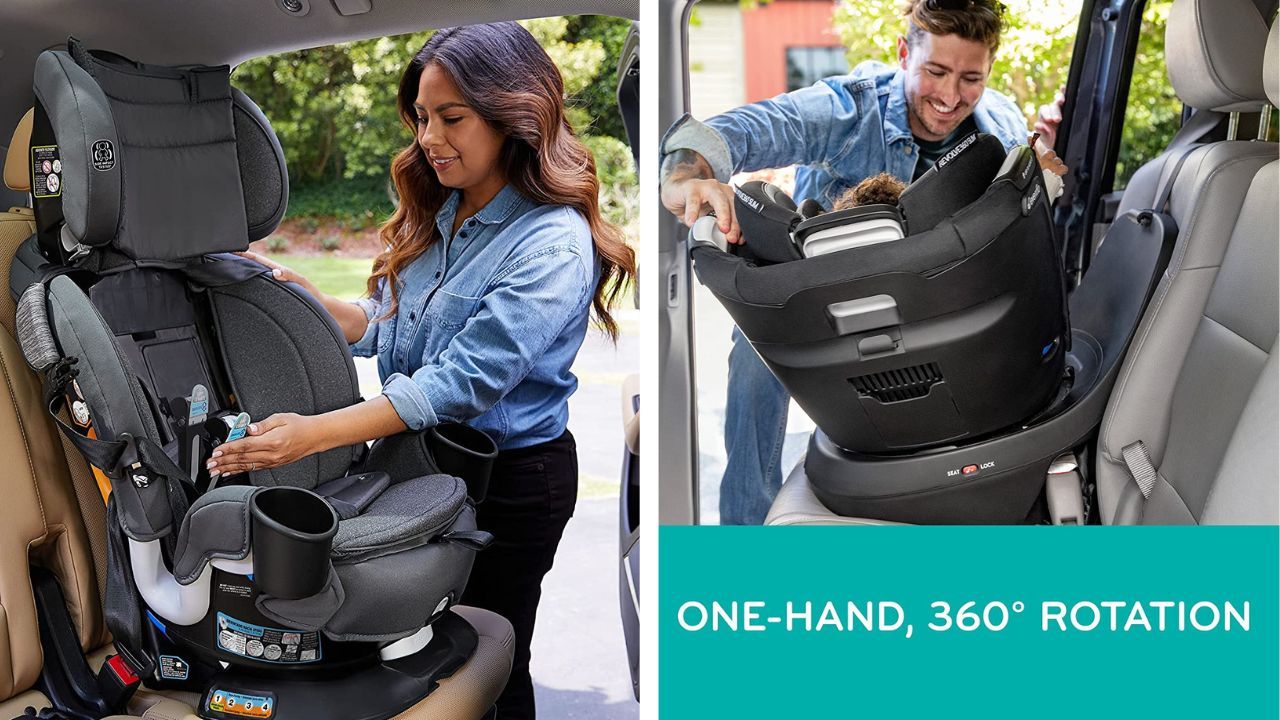Navigating the Rotating Car Seat Revolution: Unveiling the Pros and Cons
Are rotating car seats a compelling choice or not? You must read to see!

Welcome to an insightful exploration of the pros and cons of rotating child car seats, where we dive deep into the world of convenience, safety, and practicality. As parents and caregivers, we understand the importance of finding the perfect car seat that meets our little one's needs while making our lives easier. In this engaging introduction, we will uncover the advantages and potential drawbacks of rotating child car seats, helping you make an informed decision.
From the seamless maneuverability that simplifies the process of getting your child in and out of the seat to the innovative safety features that provide peace of mind, rotating car seats offer a range of benefits. However, it's essential to consider potential limitations such as size restrictions and compatibility with certain vehicles.
Let's weigh the pros and cons of rotating child car seats, empowering you to choose the ideal option for your family's unique needs. Let's dive in and unravel the mysteries of this innovative car seat design!
Pros of Rotating Car Seats
Easy Accessibility: The primary advantage of a rotating car seat is the convenience it offers during the process of getting your child in and out of the seat. With a 360° rotation capability, you can effortlessly position the seat towards the car door, avoiding awkward angles and reducing strain on your back.
Enhanced Safety: Rotating car seats often feature advanced safety technologies such as side-impact protection, energy-absorbing materials, and adjustable headrests. These features work together to provide optimal protection for your child in the event of a collision.
Long-Term Usability: Many rotating car seats are designed to accommodate various stages of your child's growth, offering multiple modes such as rear-facing, forward-facing, and booster seat options. This versatility can provide an extended lifespan for the seat, making it a cost-effective investment.
Cons of Rotating Car Seats
Size and Weight: Due to the additional mechanisms required for rotation, some rotating car seats can be bulkier and heavier compared to traditional car seats. This factor may impact portability and may not be suitable for frequent travel or transferring between vehicles.
Vehicle Compatibility: Rotating car seats may not be compatible with all vehicles. It's essential to check the seat's specifications and ensure it fits securely and properly in your vehicle before making a purchase.
Cost: Rotating car seats tend to be priced higher than standard car seats due to their advanced features and innovative designs. While they offer convenience and safety benefits, the higher cost may be a consideration for some families on a budget.
As we conclude our exploration of the pros and cons of rotating car seats, it's evident that they offer unique advantages in terms of convenience and safety. The ease of access and enhanced protection they provide can significantly simplify your daily routines and bring you peace of mind during travel. However, it's crucial to consider potential downsides such as size, weight, vehicle compatibility, and cost.
Ultimately, the decision to invest in a rotating car seat should align with your family's specific needs, budget, and lifestyle. We hope that this blog has provided valuable insights to guide you towards making an informed choice that ensures the safety and comfort of your precious little one on every journey.
However, if you would like a rotating car seat or another type of car seat then click the button below to see what we have researched and reviewed for you!

